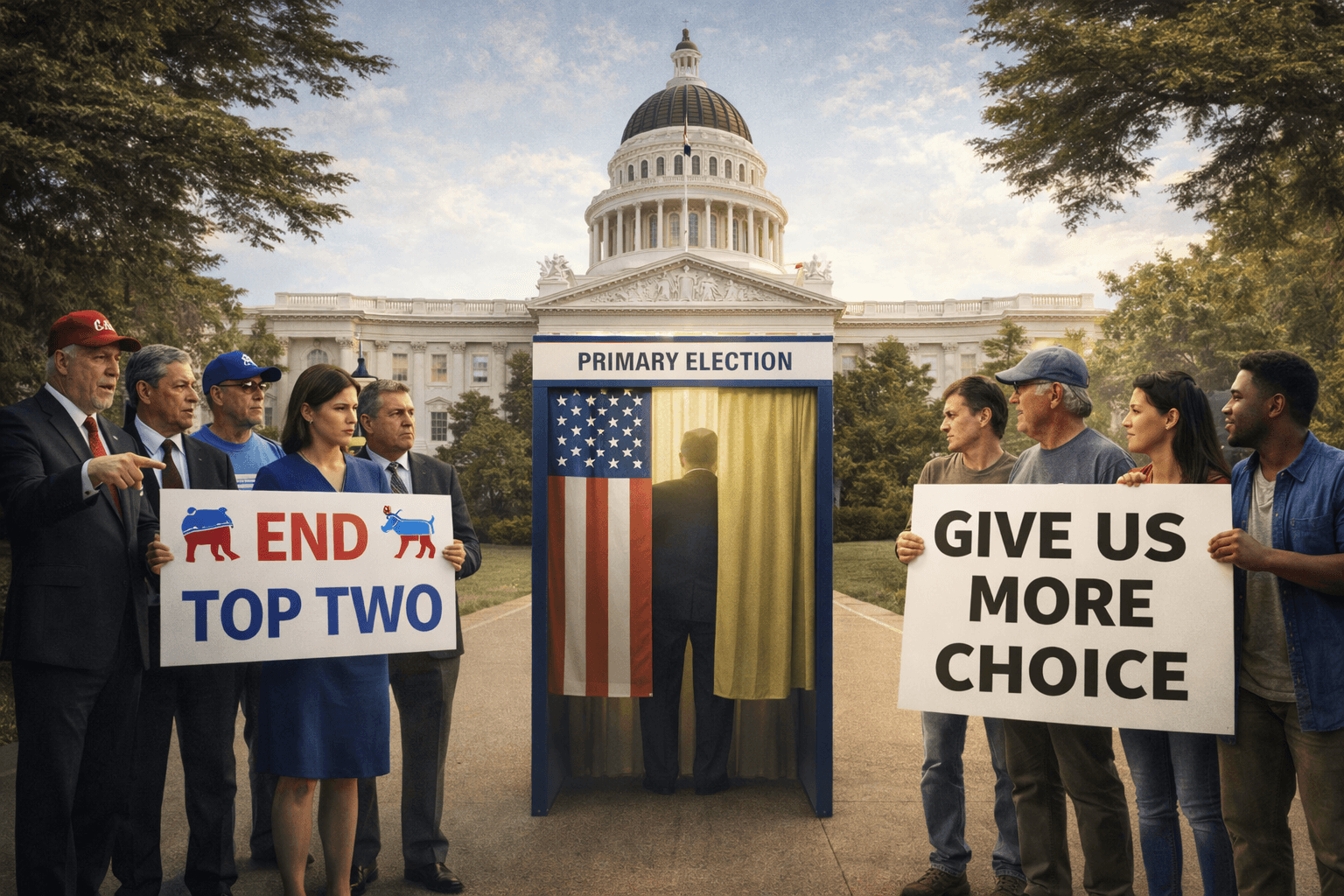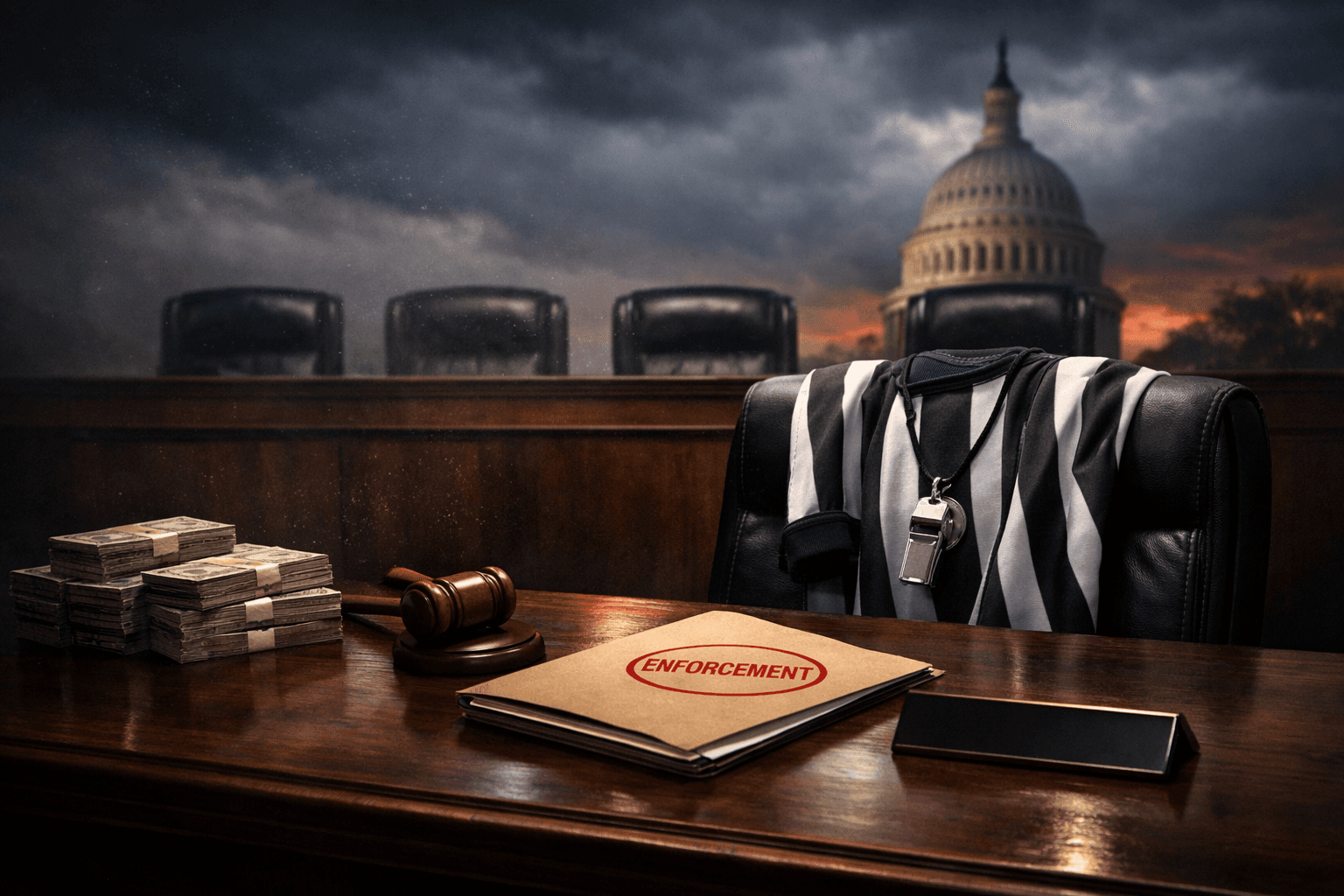Arizona Initiative: Parties Can Either Accept Open Primaries or Pay for Them

Photo Credit: Arizona Department of Transportation / Flickr
Arizona is a hotbed of political activity in the US. With the impact it had on the presidential race in 2020, many are looking to it as another critical battleground state that could decide the outcome of the 2024 election.
However, Arizona is also ground zero for a novel approach to voting reform that is not getting any attention from the national press, but could have tremendous implications for future elections and provide a fairer process for all voters -- regardless of their political affiliation.
The Proposed Reform
Make Elections Fair Arizona is in the final stages of the signature gathering process for a first-of-its-kind ballot initiative, titled the Make Elections Fair Act, that would reform state elections in a few ways.
First, it would create a nonpartisan first round election that allows all voters and candidates to participate, regardless of party, for most elections. And, the signatures needed to qualify for the ballot would be the same for all candidates across the board.
Under the current system, independent candidates have to collect six times the number of signatures compared to party candidates to appear on the ballot. Make Elections Fair seeks to level the playing field.
Voters would also not be restricted on which candidate they can support in the signature gathering phase.
The type of nonpartisan election used would be decided by the state legislature. The initiative requires the state to adopt a system that advances at least 2 and no more than 5 candidates to the general election in contests that decide a single winner.
This is a unique approach, as reformers often run with an initiative that creates a specific system. Arizona could adopt a "Top 2" system like in California and Washington or a "Top 4" system like the model in Alaska.
The Make Elections Fair Act allows the adoption of a ranked choice ballot method for elections in which 3 or more candidates appear on the general election ballot.
It also would require the state to use open presidential primaries. However, the proposal flips the script on a semi-closed primary system in which parties are allowed to decide who can vote in their primaries.
Parties would have this option, but if they choose to keep their presidential preference elections closed, they will have to pay for them. All taxpayer-funded elections would be accessible to all registered voters.
Former Arizona Attorney General Todd Goddard supports the Make Elections Fair Act. He chaired a campaign in 2022 that changed campaign finance regulations in the state to require disclosure of all “dark money” in state elections.
Goddard believes the 2024 initiative will “finish the critical reforms that permit Arizona elections to be fair, honest and open once and for all.” He said every registered voter “should be able to vote in every election for any candidate they choose.”
“This reform will require more competition which creates better choices, and better results for Arizona. It will make our state stronger,” he added.
Arizona currently has a taxpayer-funded and publicly-administered electoral system that uses closed presidential preference elections, meaning independent voters are entirely barred from the process – though they foot the bill for it.
“We find that repugnant,” said Chuck Coughlin of Make Elections Fair. “It’s a taxpayer-funded election. We all pay for it, so why can’t everyone vote?”
Non-presidential elections allow independent voters to request a party’s ballot, which forces them to pick a side, and requires them to jump over additional hurdles to vote that do not encumber party voters.
It also limits their choices to candidates of a single party in a system in which the most critical stage of the elections process is the primary of the dominant party in an electoral district.
“In Arizona, almost half of all general election races for state legislature in the last cycle ranged from outright uncontested to complete blowouts,” write John Opdycke and Jeremy Gruber of Open Primaries.
“Less than a quarter of all races were competitive in November.” Opdycke and Gruber assert that nonpartisan primaries "will create genuinely competitive general elections in every corner of the state."
At stake is the fair and equal treatment of approximately 1.4 million independent voters, who are tied with state Republicans for making up the largest segment of registered voters. Yet, they are treated like second-class citizens.
“At a time when the Democratic and Republican playbooks are built around ‘divide and conquer’ and ‘do anything you have to get 50.1 percent,’ the Make Elections Fair team is putting basic American values that have wide cross-partisan appeal on the ballot.” write Opdycke and Gruber.
“Treat all voters and candidates the same. Let all voters vote for whomever they want in every taxpayer funded election. Competition, not coronation.”
Make Elections Fair Is Close to Ballot Access
According to numbers provided to IVN by the campaign, Make Elections Fair is close to submitting the signatures it needs to make it on the November ballot. The campaign reports that it has gathered more than 480,000 signatures.
This is already more than the 384,000 valid signatures required by the state. However, ballot initiative campaigns always need to have breathing room in the event state officials invalidate some signatures.
"Collecting 500,000 signatures has been a monumental effort, but it's just the beginning of ensuring independent and unaffiliated voters have equal and fair access to our democratic process," said Paul Johnson, spokesperson for Make Elections Fair.
"Today, the largest bloc of voters is unaffiliated with either party, yet they are taxed to pay for elections and limited from participating as candidates and in primaries. Significant evidence suggests that if these voters had equal access, we could have a fighting chance to heal the divisions threatening the very foundations of our country."
The campaign’s goal is to collect between 550,000 and 570,000 to submit by the July 3 deadline. It has raised over $7.5 million, nearly all of which from Arizona donors, to help bolster the effort.
 Shawn Griffiths
Shawn Griffiths







